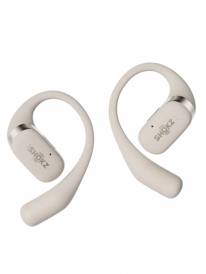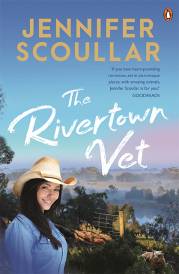Rhiannon Harris Miss Nutrition Interview

Rhiannon Harris Miss Nutrition Interview
Importance of Fatty Acids for Women
Essential fatty acids play a vital role in women's health. They are required by our body for carrying out various biological processes that keep us healthy and alive. Since they cannot be synthesized inside our body, they must be obtained from food sources or dietary supplements. Deficiency of essential fatty acids can result in serious harm to our body.
While there are several different types of fatty acids, only two of them are known to be essential for humans: Omega-3 fatty acids (also known as alpha-linolenic acids) and Omega-6 fatty acids (also known as linoleic acids). Also known as polyunsaturated fatty acids (PUFAs), they differ from other fatty acids, which act only as energy sources, in that they have a direct impact on our wellbeing.
Omega-3 fatty acids:
Omega-3 fatty acids play a crucial role in brain function and the normal growth and development of our body. Studies have shown that they can also reduce inflammation and the risk of chronic diseases such as heart disease, rheumatic arthritis, cancer, high blood pressure and diabetes.
Omega-3 fatty acids are necessary for the development of the baby's brain during pregnancy. Deficiency of omega-3 fatty acids in women during pregnancy can result in the birth of babies who are at a high risk of developing nerve, vision and immune system problems. After the child's birth, it may result in insufficient milk production and engorged breasts.
Omega-3 fatty acids are also believed to facilitate pregnancy in women with infertility problems. Intake of omega-3 during pregnancy may promote fetal growth, increase the length or pregnancy and lower the risk of premature. Consuming omega-3 during breastfeeding can expedite the child's brain development.
Omega-3 fatty acids may also help reduce menstrual pain, postpartum depression, menopausal problems and postmenopausal osteoporosis. Consumption of foods and dietary supplements rich in omega-3 fatty acids for several years may also reduce the risk of breast cancer.
The primary sources of omega-3 fatty acids are plant, cold water fish and nut oils. The fish that are rich in omega-3 fatty acids include salmon, halibut, mackerel, sardines, herring and tuna.
Omega-6 fatty acids:
Like Omega-3 fatty acids, omega-6 fatty acids also play a crucial role in brain function and the normal growth and development of our body. They have also been shown to stimulate skin and hair growth, regulate metabolism, maintain bone health and maintain the reproductive system.
Studies have shown that, consumption of omega-6 fatty acids can reduce breast pain and tenderness in women suffering from cyclic mastalgia. Omega-6 fatty acids are also believed to be effective in treating hot flashes associated with menopause although there is no conclusive proof of this. Some women have been known to experience relief from premenstrual symptoms after consuming omega-6 fatty acid supplements.
The primary sources of omega-6 fatty acids include vegetable oils (sunflower oil, poppy seed oil, grape seed oil and safflower oil, soybean oil), nuts (walnuts, butternuts, pine nuts), mayonnaise (cholesterol-free) and salad dressing. Its important to understand that an over abundance of omega 6 vs omega 3 can result in an increase in inflammation in the body. Not all Omega 6 is inflammatory however. GLA from Evening Primrose Oil is an anti-inflammatory omega 6 fatty acid.
Omega-3 vs. omega-6:
To maintain good health, there should be a balance between omega-3 and omega-6 fatty acids in your diet. The recommended omega-6 to omega-3 ratio is in the range of 2:1 to 4:1. Since you get plenty of omega-6 fatty acids from edible oils, it is usually not necessary to take supplements. However, omega-3 fatty acids may need to be obtained from dietary supplements, such as fish oil.
I recommend the product Omegalogic by Aminologic which is a combination of Omega 3 from fish oil and the non-inflammatory omega 6 GLA from evening primrose oil to ensure all bases are covered in regard to essential fatty acid intake.
Beauty Of Butter
1. High in Vitamin A – Great for hair, skin, nails, stomach, immune system, adrenals and thyroid. Butter contains an extremely bioactive and well absorbed form of vitamin A.
2. High in CLA – Conjugated Linoleic Acid is known to be anti-cancerous and to a lesser extent a fat burning agent.
3. Source of Palmitoletic Acid – A monounsaturated fat that is GREAT for the heart and circulatory system, protects against infection through antimicrobial and anti-fungal properties.
4. Contains Butyric Acid –This little gem feeds our good gut bacteria. It also has anti-cancer properties. Low levels of butyric acid in the gut mean our good stomach bacteria don't thrive and we open ourselves up to infection from parasites, pathogens and increase our risk of things like ulcerative colitis, chromes disease, colon cancer and IBS.
5. High in Selenium – Selenium is super antioxidant. Crucial for thyroid, metabolism and immune function.
6. Butter improves absorption of nutrients – Many vitamins and other nutrients are fat soluble. This also means that in the absence of fat they WILL NOT be absorbed effectively by the body. Supplements and even fruits and veges should ALWAYS be consumed with a fat source so you get the most out of them.
7. Prevents Goiters – Iodine is crucial to many systems in the body especially for pregnant or breastfeeding females. Butter is a great natural source.
8. Great for cooking – The fats in butter are very stable up to very high temperatures. Cooking with fragile polyunsaturated oils oxidizes the fat in them which then causes ALL kinds of problems in the body.
9. Anti-Oxidants- Butter Contains anti-oxidants that protects against free radical damage.
10. Protector- Protects against gastrointestinal infections in the very young or the elderly.
Interview with Rhiannon Harris
Miss Nutrition, Rhiannon Harris lights up a room. Her electric spirit, boundless energy and determination has connected her with thousands of Australians, making her one of the nation's most recognised and influential health coaches to date. A specialist in Strength & Weight Training, HIIT Training and Circuits, Rhiannon is a professional athlete and Fitness Model who is leading a movement to educate Australians about the importance Vitamins & Minerals have on everyday life.
-Strength of mind and body will help you perform. Nourishing food, Vitamins and Mineral Supplements will give you the fuel to get you where you need to go,' she says.
Having moved to Perth in 2012 to be with her partner, Rhiannon spontaneously registered to compete in the local International Federation of Bodybuilding and Fitness, (IFBB) competition. -I thought it would be a great way to meet new people and always admired the incredible competitor's physiques.' Soon after, she was invited to compete in the World Championships and Arnold Classic in Europe where she came runners up.' Having secured a suite of trophies, Rhiannon later returned home with an IFBB Professional Athlete card and the desire to educate Australians on how to achieve optimal fitness through physical activity, nourishing food and Vitamins and Minerals.
-I believe Vitamins and Minerals are fundamental to a correct health and fitness program. Females often experience hormonal imbalance, stress, concentration levels, and as a result, fitness fatigue. Vitamins and Mineral Supplements help to fuel our fire to reach optimal health and fitness,' she says.
Miss Nutrition's florescent interest in health and nutrition has touched the lives of hundreds of Australians by educating females about the need for a holistic fitness program to achieve optimal wellbeing.
Achievements:
Qualifications: Business Diploma Completing, Cert 4 in Fitness, IFBB Bikini Pro,
Awards: 2012 IFBB O'MARA Classic World Qualifier – 3rd Place (Bikini Tall Class)
2012 IFBB Australasian Championships – 3rd Place (Bikini Open)
2012 IFBB Women's World Championships, Bialystok, Poland – 2nd Pace (Bikini Tall Class)
2012 IFBB European Arnold Classic, Madrid, Spain – 2nd Place (Bikini Tall Class)
Question: What originally inspired you to participate in a fitness competition (IFBB)?
Rhiannon Harris: I had recently moved interstate and I thought it would be a great way to meet new people, I had also always admired the competitor's physiques. I had no expectations when I first started, especially not to one day be turning it into a career! It blows me away when I think about it. I am so lucky and honoured to have the opportunities that have arisen for me so far in the fitness Industry.
Question: Can you talk us through your clean eating lifestyle?
Rhiannon Harris: I always ensure I am eating the right foods to nourish my body and provide me with enough fuel to support my daily activities. It is so important to ensure you are meeting your macronutrient and micronutrient requirements daily to ensure a healthy body and mind.
Question: What do you eat and how often do you have cheat meals?
Rhiannon Harris: My everyday meals are quite simple but still very delicious. Chicken, salmon, mince, steak are some of the meats I include with veggies, green juices, salads nuts and lots of coconut oil. I also include brown rice, sweet potato and fruit. I usually have a cheat meal 1-2 times a week and usually head out to a restaurant. I ALWAYS get dessert though which will involve some form of chocolate. It is definitely my weakness.
Question: What's the best advice you can give someone who wants to take on a healthier approach to food and fitness?
Rhiannon Harris: Seek advice from someone that has been in the industry for a while that can help teach and guide you. It is so important to be educated with the right information yourself first before giving advice to others about their health and well-being. Look further than a PT qualification.
Question: Do you use supplements? If so, which ones do you use and why?
Rhiannon Harris: I certainly do, I believe supplements are just as important as food (not to be confused with replacing a healthy diet though) especially as most people are deficient in certain vitamins or minerals. Supplementing is always a good option if this is the case. I use glutamine, phytologic (greens powder), magnaredz (magnesium and super fruit concentrate) Acetyl-L-Carntine and L-Tyrosine on a daily basis to ensure health and well-being and also use lots of different vitamins from the poliquin and aminologic range; including omegalogic (DHA-EPA Fish Oil caps). This is to make sure I am getting an adequate amount of nutrients for my day to day living that I may be missing from food due to our depleted soils in this day and age.
Question: What food do you use to nourish your body after training?
Rhiannon Harris: Post workout I generally breakdown into two categories. Performance or body composition.
One thing that does not change is the fact that you need a complete source of protein containing all 9 essential amino acids to stimulate protein synthesis and complete the process. In this instance I usually use a very high quality whey protein isolate or if you are extremely dairy sensitive then look for an EAA powder or a pea or rice protein.
If you are someone that is competing in a sport that has several bouts or events or you have another training session on that day it is important you replace carbohydrate post workout as well to be restored as glycogen for fuel in the liver and muscle tissue. Despite much supplement company marketing hype the type of carb doesnt really matter as eventually it all ends up as the same thing anyway. Ive used anything from blueberry juice which is a great mix of fructose and glucose through to bags of lolly snakes.
Question: What inspires your training program?
Rhiannon Harris: There is no one thing, I always change up my training using all different types of training methods in my workout. I do ensure though that I always have one of the same lifts on each muscle group day that I record to ensure growth and strength.
Question: How do you prepare for a competition or fitness photo shoot?
Rhiannon Harris: My everyday life and preparation for shoots or comps are actually quite similar, which avoids me having to crash diet or do anything silly to get in shape in a short amount of time. I'm just a bit stricter during preps or if I have a shoot coming up with meals timings and macro and micro nutrient needs to ensure I am meeting my goal on time. I will also only have one cheat meal week during preps.
Question: Can you tell us about your movement to educate Australians about the importance Vitamins & Minerals have on everyday life?
Rhiannon Harris: There is a growing awareness of health and fitness finally getting through to the general public. We can see the evidence of this in the rapid increase in 24 hour gyms and fitness centres. What we need to do now is further educate those people taking an interest in their health and emphasize the point that training is only half (actually probably less) of the equation and the nutritional and supplementation choices are of even greater importance. In todays world especially as the 60 odd vitamins and minerals that used to be found in abundance in soils have been replaced with NPK fertilizer. A lack of these micronutrients opens us up to all sorts of problems from compromising our immune system to throwing hormones out of whack. This is why it is crucial to ensure all micronutrient needs are met through supplementation.
Question: What Vitamins & Minerals are most important for females?
Rhiannon Harris: I recommend a brought spectrum multivitamin and phytonutrient formula like Phytologic. This covers the micronutrient needs as well as some added benefit from alkylizing greens, adaptogens to help us deal with the stresses of day to day life and plenty of superfruits as well for high antioxidant value.
In addition essential fatty acids are crucial for hormone production and circulatory health. An imbalance of omega 6 to omega 3 is common today due to the changing state of the fat composition of conventionally grown meats. I recommend Omegalogic which is a blend of the omega 3's EPA and DHA and the anti inflammatory omega 6 GLA.
Vitamin D should be tested in blood and supplemented accordingly.
Magnesium is responsible for over 300 enzymatic processes in the body and is VERY commonly deficient in females especially training or pregnant females. It plays a vital role in insulin sensitivity and blood sugar regulation, controlling stress and most people having sleep problems are usually fixed when magnesium levels are restored, sleep disturbance is a very common symptom of magnesium deficiency. I take a teaspoon of Magna Redz every night which gives me all the magnesium I need plus some more superfruit powders for antioxidants.
Interview by Brooke Hunter
MORE





